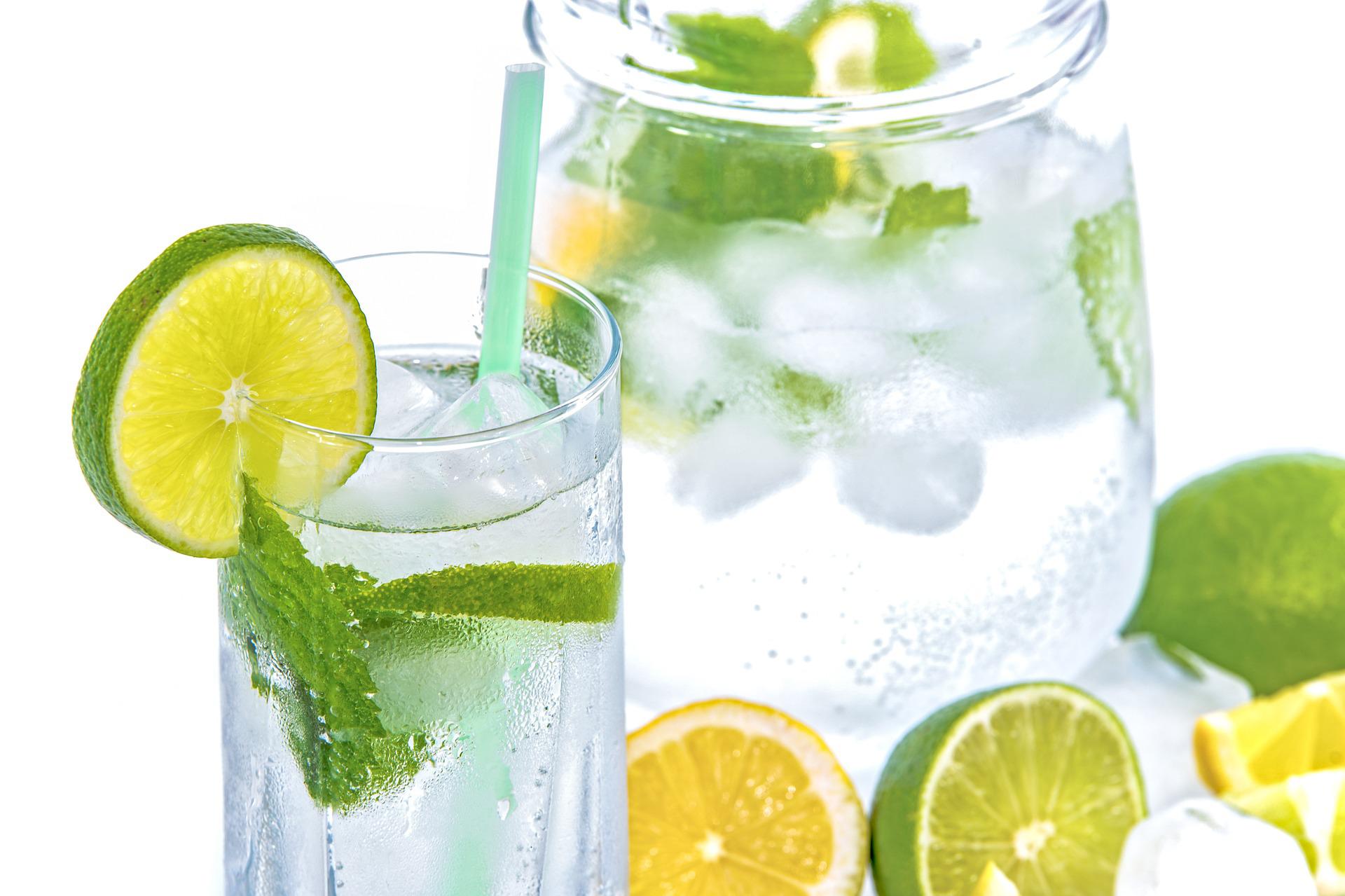I’m sure you are familiar with the saying, “You are what you eat.” In other words, to be fit and healthy, you need to eat good food. And yet, even the healthiest of food won’t be properly digested by a poorly functioning intestinal tract; and this can lead to chronic health problems.
In fact, more than 60 million Americans suffer from digestive disorders including heartburn, indigestion, gas, bloating, diarrhea, and constipation. Poor digestion can result in fatigue, headaches, and depression – all of which can lead to weight gain. Making a few simple changes in the way you eat can make a big improvement in your digestion and maximize your weight loss efforts.
5 Simple Steps to Improve Your Digestion
Step 1 – Eat less
One of the most common reasons for poor digestion is overeating. Too much food entering your body at once overwhelms your upper digestive system and this can result in heartburn, gas, diarrhea, and other unpleasant symptoms. A simple solution is to reduce your portion sizes. Imagine your stomach being a blender that needs room to properly grind the food you eat and mix it with enzymes. If you overfill your stomach, it will not be able to properly blend its contents. Don’t stuff yourself; eat until you comfortably satisfied. And eat regularly throughout the day. Aim for 3 small meals per day with a small snack between meals if you are legitimately hungry.
Step 2- Eat unprocessed and minimally processed whole fresh foods
With all the highly processed fast-food meals consumed every day, it’s no wonder so many people suffer from digestive problems. One of the most significant things you can do to ensure proper gut health is to eat mostly home-cooked meals. Balance your meals by including a variety of unprocessed and minimally processed whole foods.
- Fresh fruits and vegetables
- Legumes such as beans, peas, and lentils
- Nuts and seeds
- Whole grains
- Organic eggs and poultry, grass-fed lean meat, and wild cold-water fish
Step 3. Chew your food properly
There is more to chewing than simply grinding up the food in your mouth so you can swallow it. Important enzymes that help with the digestion of carbohydrates and fats are secreted by the glands in your mouth. If you swallow your food too quickly without adequately chewing it, you may experience symptoms of maldigestion and malabsorption – gas, bloating, indigestion and worse. Simply put, adequate chewing is essential for good digestion. Practice taking your time when eating. Chew each bite thoroughly and enjoy your food.
Step 4. Drink plenty of water
Drinking enough water is absolutely essential for good health, and it is especially important for digestion. One of the major functions of water is to bulk up your stool and keep it moving along so you don’t get constipated. Also, water plays an important role in detoxification by naturally flushing the toxins from your entire body including your digestive system. Make it a habit to drink water regularly throughout the day to avoid becoming dehydrated as this can negatively affect your digestive system. If you don’t normally drink much water, make a conscious effort to do so. Drink a glass first thing in the morning and swap your soda, energy drinks, and coffee for water throughout the day. As a general guideline, drink ½ ounce of water per pound body weight. That means if you weight 150 lb, you should drink 75 ounces water every day.
Step 5. Be Active
The benefits of regular exercise are many, yet most Americans do not get nearly enough. A lack of exercise can contribute to weight gain, which in turn can lead to digestive diseases and many other chronic health problems. Exercise – in and of itself – supports proper digestion by stimulating the normal contractions of the intestines and reducing constipation. Thus, it is important to remain active each day. In general, 30 – 45 minutes of light to moderate exercise daily will support gut health and an overall sense of well-being.
Lorraine Matthews-Antosiewicz, MS, RD
PS…
The key to successful weight management and digestive health is making healthy changes that you can keep up for the rest of your life. This can be extremely challenging – especially with all the unhealthy food choices you’re faced with every day.
I can help you find simple ways to get back on track so you can feel better, have more energy, and lose some weight. LET’S TALK. I look forward to speaking with you.
If you need help creating a healthy eating plan, give me a call @ 732-494-1149.




Can you see any possible issues with constantly eating as below?
Breakfast:
Blueberries, blackberries, or apple.
1 slice of dry, 100% whole-grain toasted bread with 1 slice of 99% fat free turkey breast.
1 fresh tomato
Hot tea (no milk, no sugar)
1 capsule of Omega 3
Lunch:
Grilled skinless chicken breast, lots of romaine lettuce, tomatoes, cucumbers and green or red paper. All vegetables fresh and uncooked. Once a week just chicken and lots of spinach.
Hot tea (no milk, no sugar)
Twice a week I have fish instead of grilled chicken breast.
Dinner:
Grilled skinless chicken breast, romaine lettuce, tomatoes. All vegetables fresh and uncooked.
Hot tea (no milk, no sugar)
Snack
Fresh apples (uncut)
Hi Mark-
I don’t see any major problems with what you are eating. All of your choices appear healthy. You are getting a few different fruits and vegetables. Perhaps you could be adventurous and try some different fruits, vegetables, and grains. And if you are not opposed include more low-fat or fat-free dairy products, and some healthy fats such as nuts, avocado, and olive oil.
Thanks for sharing!
Absolutely undeniable! These 5 steps changed my life several years ago. I have been a vegetarian for over a year and feel spectacular. Just recently, while increasing my carb intake (training for a marathon), I experience bloating and constipation, which is funny because I eat tons of veges and high fiber. What I took for granted was “wheat overload” or gluten-ny! Fairly certain I was consuming way too much wheat products. So I went gluten-free and have been regular, not bloated, feel lighter and more energetic!
I highly recommend trying if having these issues.
Wendy R.
Hi Wendy. So glad to hear you are feeling better. Just wanted to mention that I always advice my clients who think they are having issues with wheat to get tested for Celiac Disease before eliminating wheat; otherwise the test could come back with false negative results. Once Celiac Disease is ruled out, we can safely proceed with exploring other possibilities of the symptoms such as wheat sensitivity.
Fantastic blog !
Thank you so much for taking the time to share such a nice information.
You’re welcome Debbie. Thanks for the feedback.
My 19 year old daughter does all five that you mentioned. She has been on her high school and now on her college cross country team. She eats extremely well no refined foods with plenty of raw foods. She also takes a good quality digestive enzyme. However she struggles with poor digestion and has gain almost twenty pounds in the past year.
Do you have any
Hi Mark- Your daughter may be experiencing food sensitivities and/or an intolerance to FODMAPs (fermentable carbohydrates) – both of which can cause gastrointestinal symptoms.Check out my website for more information. https://www.njnutritionist.com.
I was questioning food sensitivities as well because some of the foods she seems to crave, especially the nut. However, she was a vegan until she added organic eggs to her diet. So I didn’t want to push the issue about eating raw nuts daily because I know they are a good source of protein.
Thanks for getting back so soon!
BTW…I just added you to my G+ circle.
You may want to put a +1 button and G+ badge on your blog and website.
Thanks again!!
Hello,
For the longest time I’ve had problems with poor digestion. Eating anything raw, like veggies or salads – well, I just didn’t go near these kinds of food because of the extreme distress in that I just don’t digest these foods, They sit there and ferment. Deepak Chopra is well known for his books on spirituality. The first book I read of his is called ‘Perfect Health’. I took the test to determine my dosha which I believe turned out to be Vatta. I was so shocked reading the information since it felt like it was directly focused on me. It said that with my dosha I should always eats foods that are well cooked. For many years I made my own ghee.
At one time I was seeing a Naturopath and was given an herbal supplement called ‘Herbal GI’. It was wonderful – until they changed the formula. It had things like cranesbill and marshmallow root. It’s been many years now and nothing from the health store with a focus like digestive enzymes don’t do a thing.
I’ve always had a light frame and was very slender however I have numerous physical and emotion/cognitive disabilities. In 2007 I was put on medication and my stomach just kept ballooning. I kept asking what was wrong. I was 135 lb at the time and considered I needed to lose 10 lbs. I ballooned up to 200 lbs which as you might imagine caused me huge distress.
I look like I’m pregnant (I just turned 65 yrs old) and I mean a very large stomach protrusion. I read somewhere that a poor digestive system can be the cause of weight gain.
I am primarily vegetarian and minimize dairy as much as possible. I do notice that it’s mucus forming. From a very early age 13-14yrs I’ve always had an interest in cooking with a definite bent towards healthy food that tastes great.
I really like product development and lately have developed recipes using coconut milk instead of cream which has been received very positively.
As you can image it’s beyond difficult buying clothes. It would be nice to feel good about myself again.
If you have any suggestions or can point me in the right direction I would be so grateful.
Thank-you.
P.S. (believe it or not) – I’ve just started to take Turmeric with Bromelain and hope for some positive results.